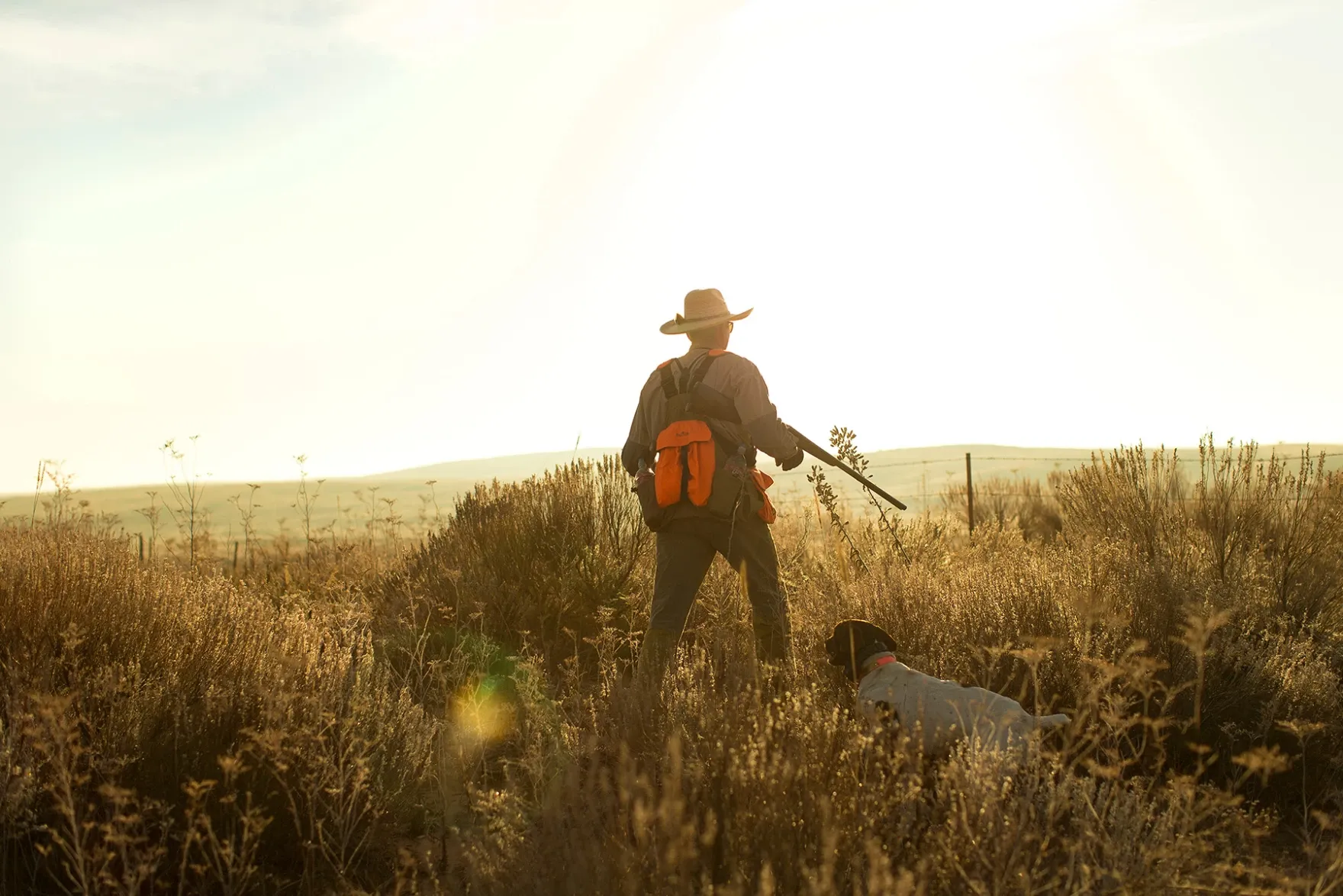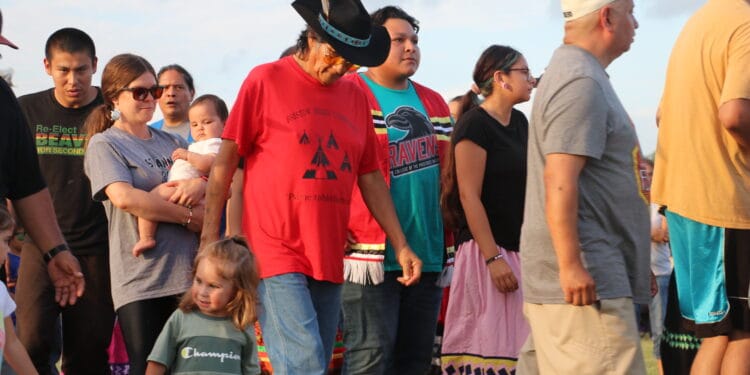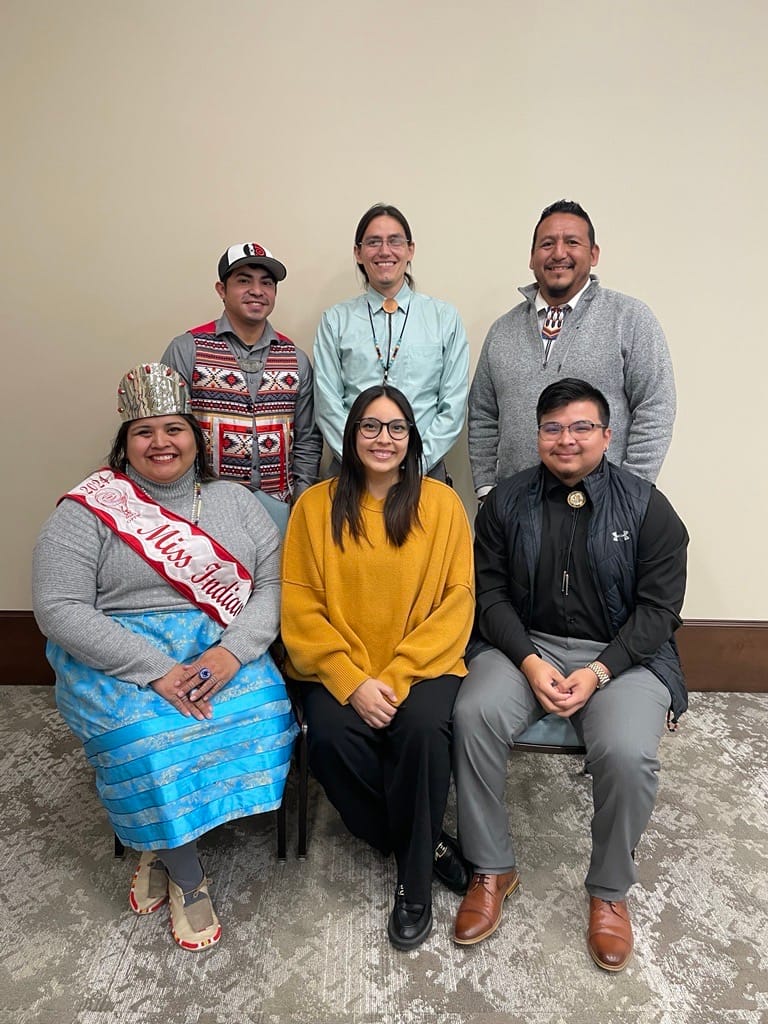

Feds say wind farm owes millions for turbines in Osage County; wind farm attorneys disagree

A federal judge says a wind farm must pay the Osage Nation for illegally mining on Osage land, but the court hasn’t decided how much. At closing arguments this week, federal prosecutors argued those damages are more than 500 times as much as the wind farm’s attorneys say it should owe.
By Graycen Wheeler, KOSU
Three interrelated companies — Enel Kansas, Enel Green Power North America and Osage Wind — leased land in 2010 to build 84 wind turbines. The lease covered 84,000 acres of surface land in Osage County, not the earth and minerals underneath. But the companies dug huge holes at the base of each turbine and used some of the excavated rocks as backfill.
In 2013, the Osage Minerals Council sued. They say this counts as mining, which requires a permit the wind farm never applied for. After 10 years in court, a federal judge agrees. Late last year, she ruled the companies must pay the Osage Nation damages, but the court hasn’t determined how much those are worth.
This week, attorneys presented dueling estimates before the judge. The wind farm’s lawyers argued they only owe around $69,000. But the U.S. Attorney’s Office says it’s more like $38 million, according to a report from the Tulsa World.
The judge will decide how much is owed now that attorneys have made their closing arguments.

Oklahoma tribal nations announce joint hunting-fishing compacts

By Kelly J. Bostian of Oklahoma Ecology Project
Oklahoma tribes announced a step Friday that unites the entities, makes hunting and fishing easier for all of their tribal members, and combines expanding tribal wildlife management efforts.
It further solidifies the end of state-tribal compacts severed by Gov. Kevin Stitt in 2021.
The Inter-Tribal Council of the Five Tribes announced the Five Tribe Wildlife Management Reciprocity Agreement at its July quarterly meeting at the Hard Rock Hotel & Casino Tulsa. The agreement allows hunting and fishing licenses issued through each tribe to be recognized by the other tribes on respective reservation lands.
According to the announcement, tribal members and citizens of the Cherokee Nation, Chickasaw Nation, Choctaw Nation of Oklahoma, Muscogee Nation, and soon the Seminole Nation can use their tribal membership to hunt and fish on lands of all tribes’ treaty territories.
The announcement notes that the new agreement will allow the Five Tribes to collaborate on wildlife management within their reservations and enhance their ability to manage natural resources.
"Hunting and fishing are inherent treaty rights among our five tribal nations and have been vital to food security for generations of Cherokees," said Cherokee Nation Principal Chief Chuck Hoskin Jr. "As Cherokees, we can use tribal citizenship photo IDs to hunt and fish on our 7,000-square-mile reservation. For the past two years, this has proven to be a highly successful initiative for both the tribe and our outdoor sportsmen. This new Five Tribes agreement makes hunting and fishing in eastern Oklahoma more sustainable, and more diverse for all our citizens. The adoption of uniform codes by all tribal governments involved is a significant accomplishment and demonstrates the strength of our collective sovereignty.”
The announcement completes tribal efforts to replace a system that ended in December 2021 when Gov. Stitt refused to renew state and tribal hunting and fishing compacts.
Under the compacts, tribes paid the Oklahoma Department of Wildlife Conservation to license their members. It meant lower costs to tribal citizens but kept participation in the state’s records for tracking harvest on all lands within the state and preserved participation numbers that influence federal funding formulas based in part on participation compared state-to-state.
According to department records, the department last received $689,240 for tribal-compact license sales in fiscal 2021. That year estimated participation in deer hunting alone totaled 457,020 license holders statewide. The following year, that statistic fell 35 percent to 294,796.
In October 2022, tribes made hunting and fishing licenses available to members and citizens. Most tribes allow their tribal membership cards to serve as their credential or license. Friday’s announcement noted that all Oklahoma residents with valid state-issued hunting and fishing licenses remain eligible to hunt and fish within these tribal treaty territories under all applicable laws. Hunting and fishing activities by tribal members and citizens will be subject to the laws of the tribe on whose reservation the activity is taking place.
"We have established the Choctaw Nation Wildlife Conservation Department to assert our tribal sovereignty. This department determines how our citizens hunt and fish on our reservation by using their tribal membership," said Choctaw Nation Chief Gary Batton. "We have now taken a significant step forward by partnering with the Inter-Tribal Council. This partnership will provide further opportunities for our tribal members to hunt and fish on our reservations using their tribal membership. Together, we are asserting our tribal sovereignty and benefiting approximately 815,000 tribal citizens as well as all Oklahomans."
The announcement notes that hunters and anglers on the various reservations are responsible for knowing and abiding by any applicable laws. Tribal citizens will also be responsible for securing permission to access land owned by others. Each Tribe will manage programs to provide access to Tribally owned areas.
Tribal citizens or members reporting harvests will report to the tribe to which they are citizens or members.
The agreement honors statewide hunting and fishing limits, which are considered aggregate statewide. According to the announcement, limits will not reset in or outside each reservation.
Each tribe will report basic harvest data each year by Feb. 28 to help regulate and manage wildlife.
The Tribes indicated that they look forward to working with State and Federal partners as they implement this agreement and continue identifying partnerships for advancing wildlife conservation. State game wardens cross-deputized with the respective tribes can ticket and enforce laws on these reservations.
The Oklahoma Ecology Project is a nonprofit dedicated to in-depth reporting on Oklahoma’s conservation and environmental issues. Learn more at okecology.org
Festival celebrates Mvskoke culture and people

Saturday night sees enormously packed crowds
by Braden Harper, Mvskoke Media
MVSKOKE RESERVATION – When the Oklahoma temperatures are at their hottest, and the sunsets are at their longest, that can only mean one thing, it is time for the Mvskoke Festival to commence. This year brought a slate full of fair rides, sports tournaments, rodeos, art markets and food vendors. Tournaments began on Friday, June 14 and ran through Sunday, June 23.
The main weekend of Festival kicked off on Thursday, June 20 and started off with senior activities at the Mvskoke Dome in Okmulgee. In Tulsa at the River Spirit Casino and Resort the tribe recognized five elders with one of the highest honors a Mvskoke citizen can receive: the Living Legend Award. Thursday’s evening festivities served dinner before the annual social Stomp Dance while the fun fair delivered thrills and fun to the north of the fairgrounds. Tribal leadership including Principal Chief David Hill, Second Chief Del Beaver and various members of the National Council were present chatting with attendees. Likewise, attendees had the chance to meet the newly crowned Mvskoke Royalty; Miss Janaya McIntosh and Jr. Miss Olivia Beaver.
Rising and shining at Harmon Stadium on Friday, June 21, students competed in the Junior Olympics. This year’s golf tournament moved up north on the reservation at the Page Belcher golf course in Tulsa. The annual Bull Bash Bull Riding event kicked off in the evening at the Bob Arrington Arena back at the fairgrounds.
Saturday, June 22 began with the 5k. In the afternoon Festival goers had the opportunity to brave long lines in order to meet the chiefs at the dome. Later in the evening saw past legends come together for the annual softball reunion.
Always a crowd favorite, Festival’s live entertainment saw lineups that included Locash, Joe Nichols, and the I Heart the Nineties Tour. Saturday night notably saw packed crowds, some reporting it took up to 45 minutes to get from the stop light intersection at Highway 75 and Highway 56 to a parking spot.
Sunday, June 23 concluded the main Festival weekend with the Fastpitch Tournament Finals, and the second annual Fourth Sunday on the Reservation, a worship event that featured gospel and hymn singing.
According to tribal leadership, they could not be happier with this year’s turnout and the hard work that went in to planning the biggest event of the year for the tribe. This year marked the third year of the Festival since the Covid-19 Pandemic did not allow large crowds to gather in 2020 and 2021.
“It finally feels like Covid is in the rear-view mirror now,” Second Chief Beaver said. “I know it's never going to completely go away, but it's not something people worry about. It seems like they feel more comfortable coming out.”
This year saw Mvskoke citizens come out from all corners of the United States. According to Principal Chief Hill, his favorite part about Festival is meeting new faces. “When it’s their first time coming and they just enjoy meeting us, but for me, I get to meet them and it just keeps growing,” Principal Chief Hill said.
Full photo coverage of the 2024 Mvskoke Festival can be found on Mvskoke Media’s Facebook page.
Building a new generation of speakers

ADA, Okla. - The Chikasha Academy Adult Immersion Program (CAAIP) will soon graduate five highly motivated students who will then teach the Chickasaw language to others, according to Joshua D. Hinson (Lokosh), executive officer of language preservation for the Chickasaw Nation Department of Culture and Humanities.
“The academy’s approach is a highly structured group immersion program that is based upon the Salish Fluency Transfer System, developed by the Paul Creek Language Association located in British Columbia. We worked closely with three Salish communities to develop our own curriculum. Ours is based on Rosetta Stone Chickasaw,” Hinson said. “Principally, the underlying scope and sequence of Rosetta Stone Chickasaw and narratives are drawn from the videos forming the core curriculum. The students – who spend three years learning the language eight hours per day – learn through those stories derived from Rosetta Stone as well as traditional stories told by our fluent, Native speakers.
“Because they get so many contact hours during their learning journey and because we don’t speak English in this immersive approach, they become very good, very quickly,” he said.
When the program began in 2022, the Chickasaw Nation was hoping the program would produce intermediate-mid level conversational speakers of the language. Upon graduation, students will be intermediate-mid to advanced speakers, capable of sustained conversation in Chickasaw.
“I am thrilled with the program’s success. The students have accomplished very quickly what took me, Clovis Hamilton, director of Chikasha Academy and Ric Greenwood, Chikasha Academy manager, an exceedingly long time to learn. This immersion course is extremely focused and was developed through a lot of trial and error. It is so good we believe soon the program may be scaled into a two-year program,” Hinson said.
The five immersion students are Chickasaw citizens and include Briana Mason, Jason Morgan, Jared Walker, Faithlyn Seawright and Elias Brown.
“They are all young, and the astonishing fact is they come from a variety of backgrounds. You have three who have relatives who spoke fluent Chickasaw and a couple who had little prior exposure to the language,” Hinson said.
Jared Walker’s paternal great-grandmother was Pauline Walker, his paternal grandmother was Sally Walker, and his maternal grandmother was Pauline Brown, all fluent Chickasaw speakers.
Faithlyn Taloa Seawright was introduced to the language as a child and has been involved with the Chickasaw Nation since, serving as 2021-22 Chickasaw Princess and Miss Indian Oklahoma in 2024.
Jason Morgan grew up in Ada and was a standout athlete at Ada High School. Growing up, he was not familiar with the language.
Elias Brown grew up outside Chickasaw Nation treaty territory and worked in hospitality. Before joining the group, he did not know the Chickasaw language.
Briana Mason’s grandfather, “Wild” Bill Pettigrew, assisted fluent Chickasaw speaker Catherine Willmond and University of California Los Angeles linguist Pam Munro with “Chikashshanompaat Holisso Toba’chi, Chickasaw: An Analytical Dictionary,” published in 1994. Her interest in speaking Chickasaw grew from attending East Central University’s language class instructed by Brandon White Eagle.
“Going into their third year, what they are doing is increasingly having contact with Native speakers and work extensively with fluent speaker Luther John. They also meet with the Chickasaw Language Committee once a month in addition to participating regularly with a smaller subset of fluent speakers a few times per week,” Hinson said.
“They will continue their immersion hours but have already begun to teach other people this material. Once you know it, you teach it to somebody else. In their third year, they are undergoing teacher training to prepare them to be full-time language workers,” he added.
Hinson said from 2007 to 2015, the Chickasaw Nation concentrated on a traditional, one-on-one master apprentice program.
From 2015 to 2021, the tribe worked with a modified group approach before Governor Anoatubby approved the Chikasha Academy Adult Immersion Program in 2022.
“All we accomplished and had success with since 2007 has led us to where we are at today,” Hinson said.
“The point is, we have proved in a limited span of three years we can produce newly conversational speakers of the Chickasaw language. These five people will go on to equip other people to do the same thing they have just accomplished,” Hinson said. “We are preparing the next generation of people who can truly have conversations in the language.”
Hinson said working so closely with immersion students and fluent speakers has helped create a real-life speech community, just like those in the past. They are using the Chickasaw language to communicate with one another on a daily basis.
“Beyond the Chikasha Academy program, Chickasaws around the world are using the resources that Governor Anoatubby has made available for them as they too continue their own language journeys,” Hinson said. “These worldwide learning communities are connecting with one another using the language. This is the power of Chikashshanompa' (the Chickasaw language) – its ability to connect us together as Chikasha people, regardless of who we are, where we are from or where we live now.
“This power is accessible to all of us who choose to engage with it. All it takes is a single word. Say something in Chickasaw and see where the language can take you. You might be surprised where you end up – maybe even joining a Chikasha Academy Adult Immersion Program cohort of your own some day in the not-too-distant future.”




